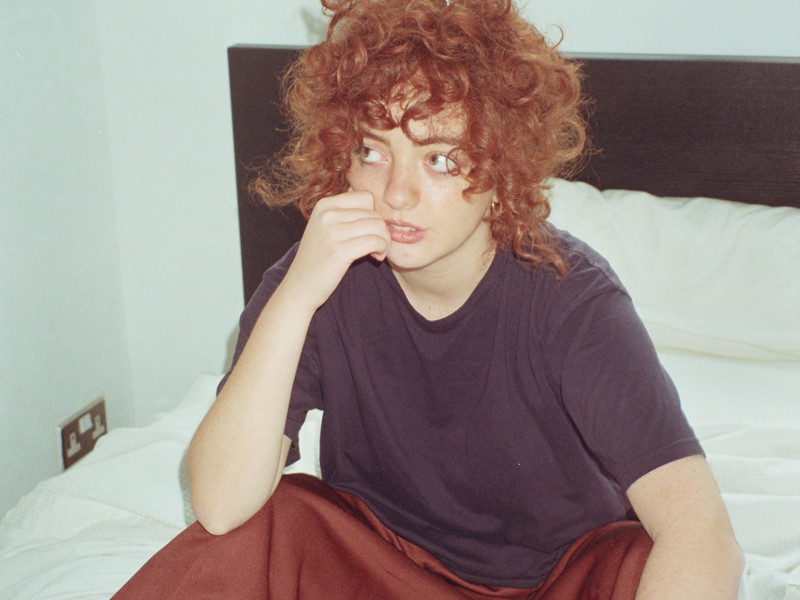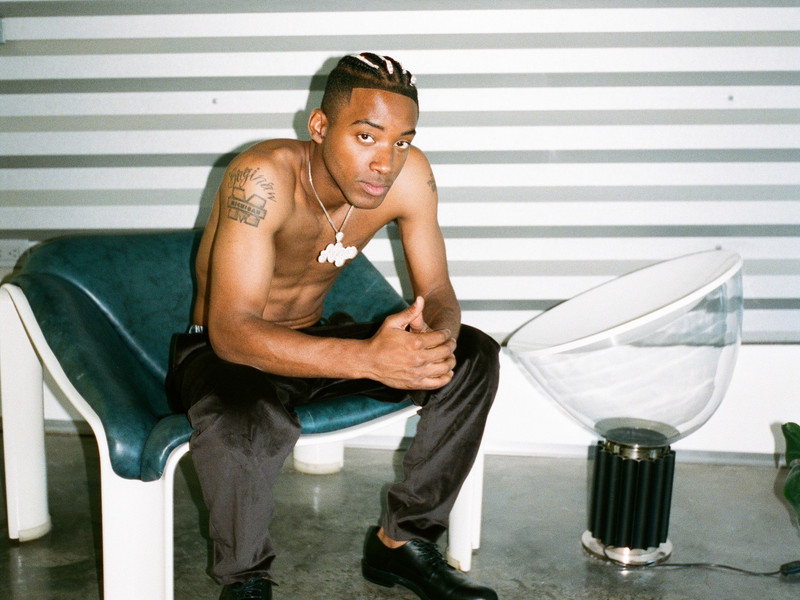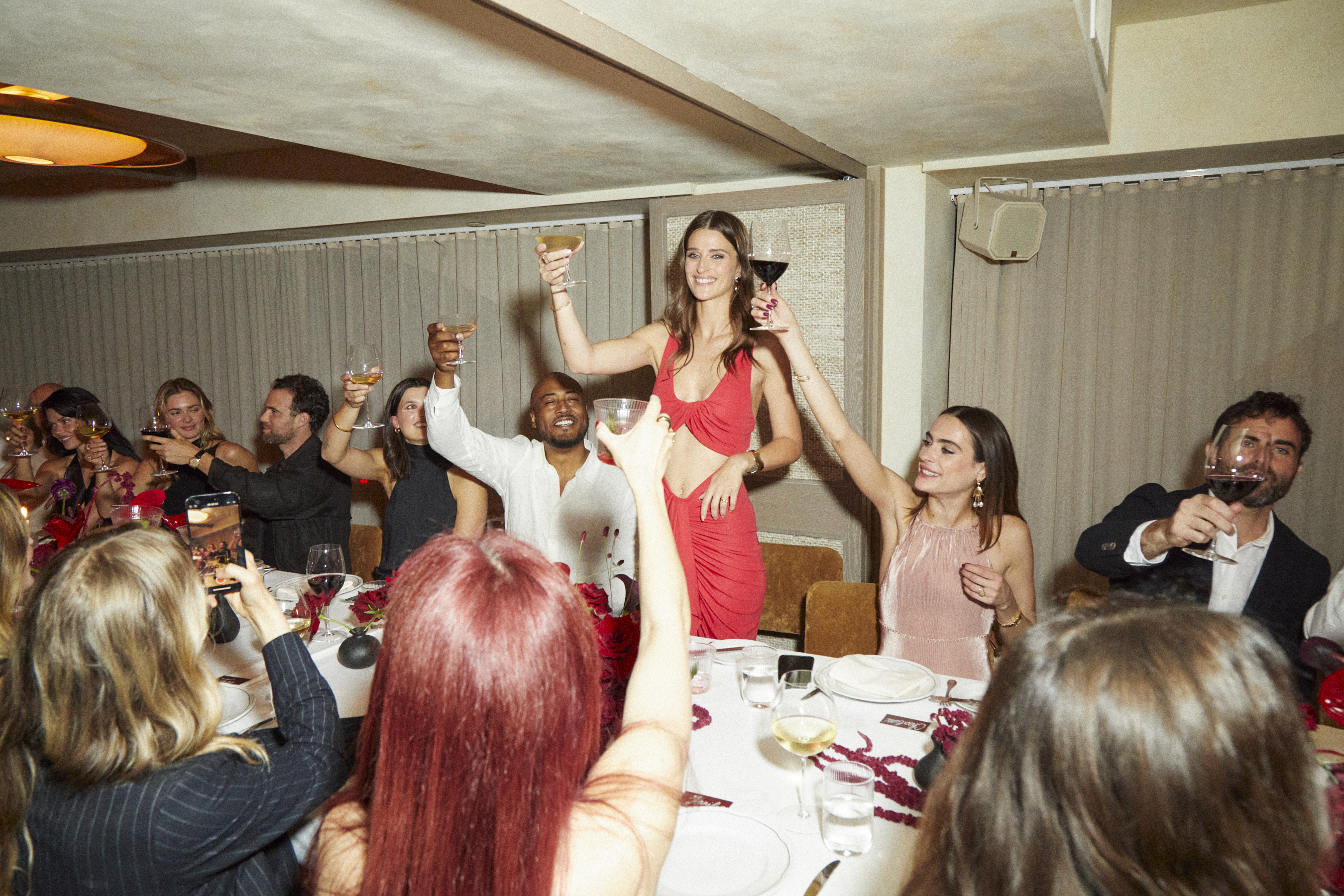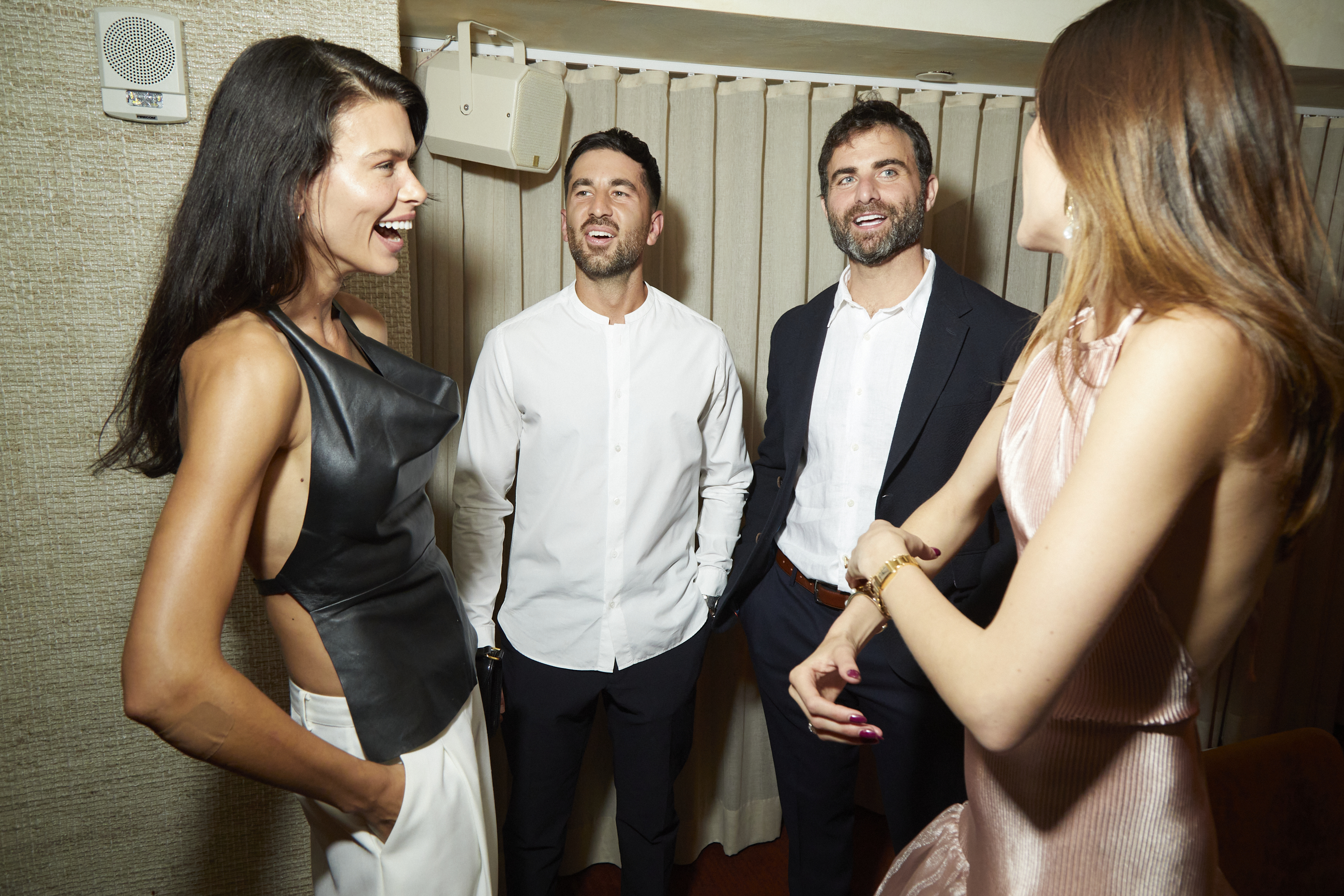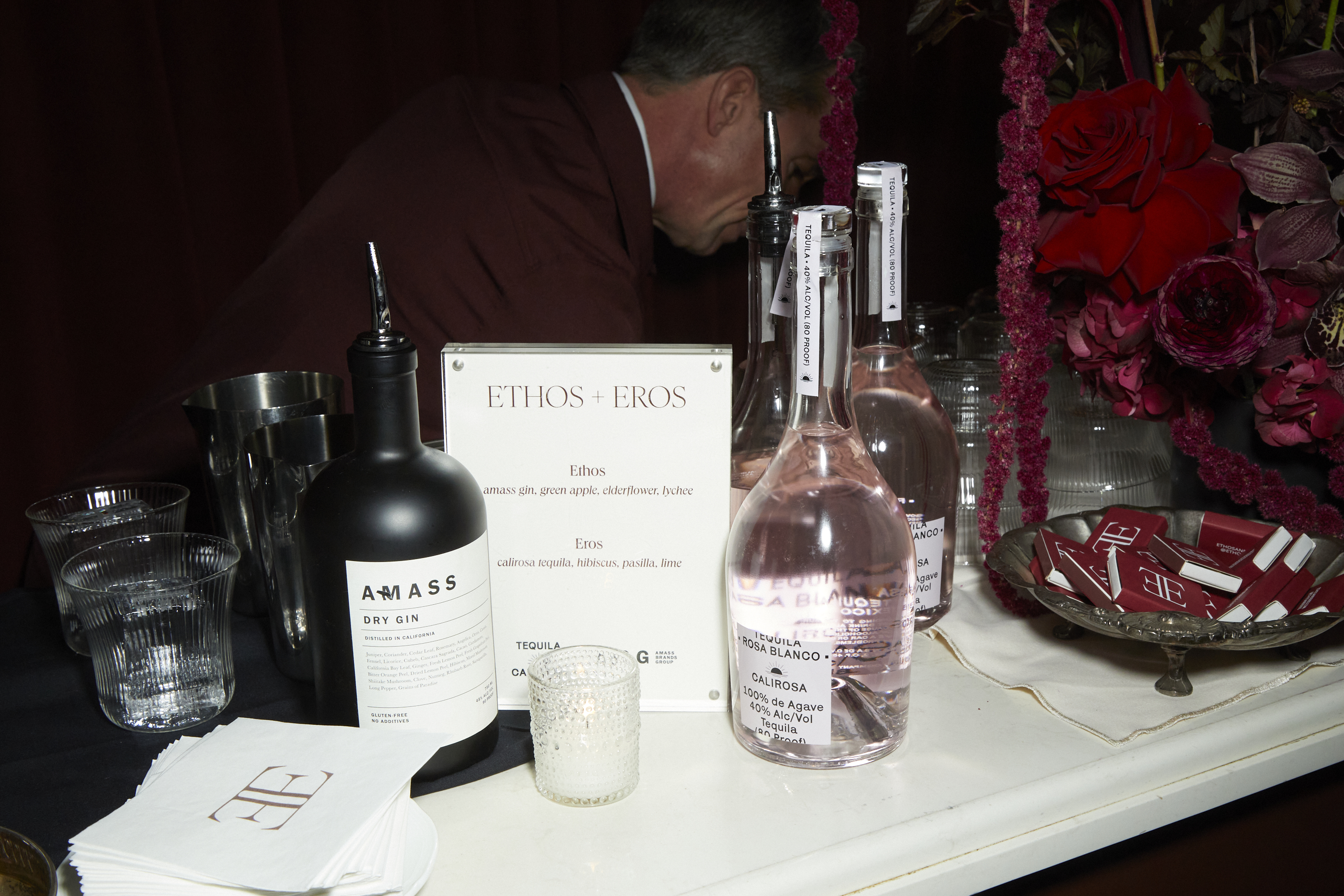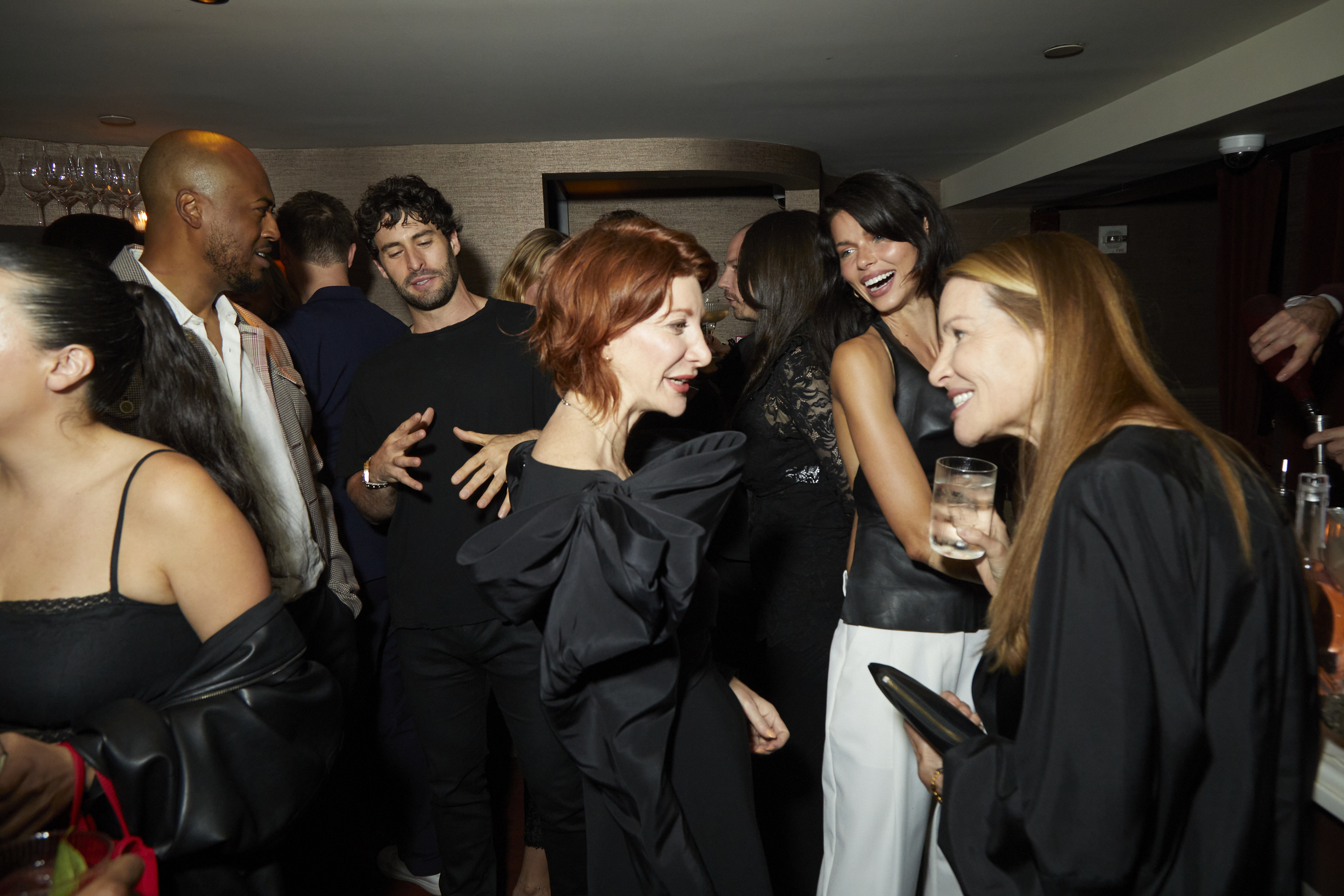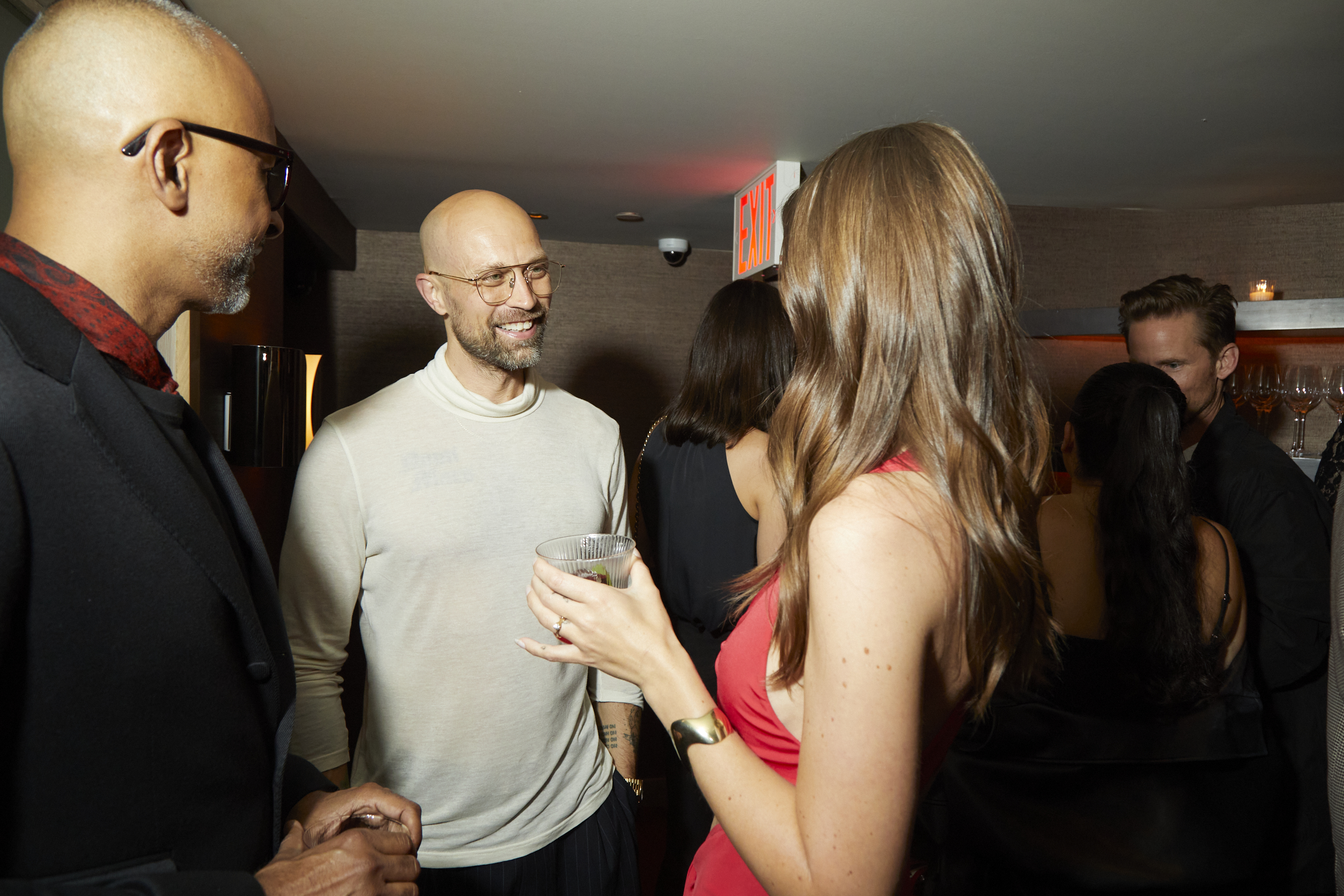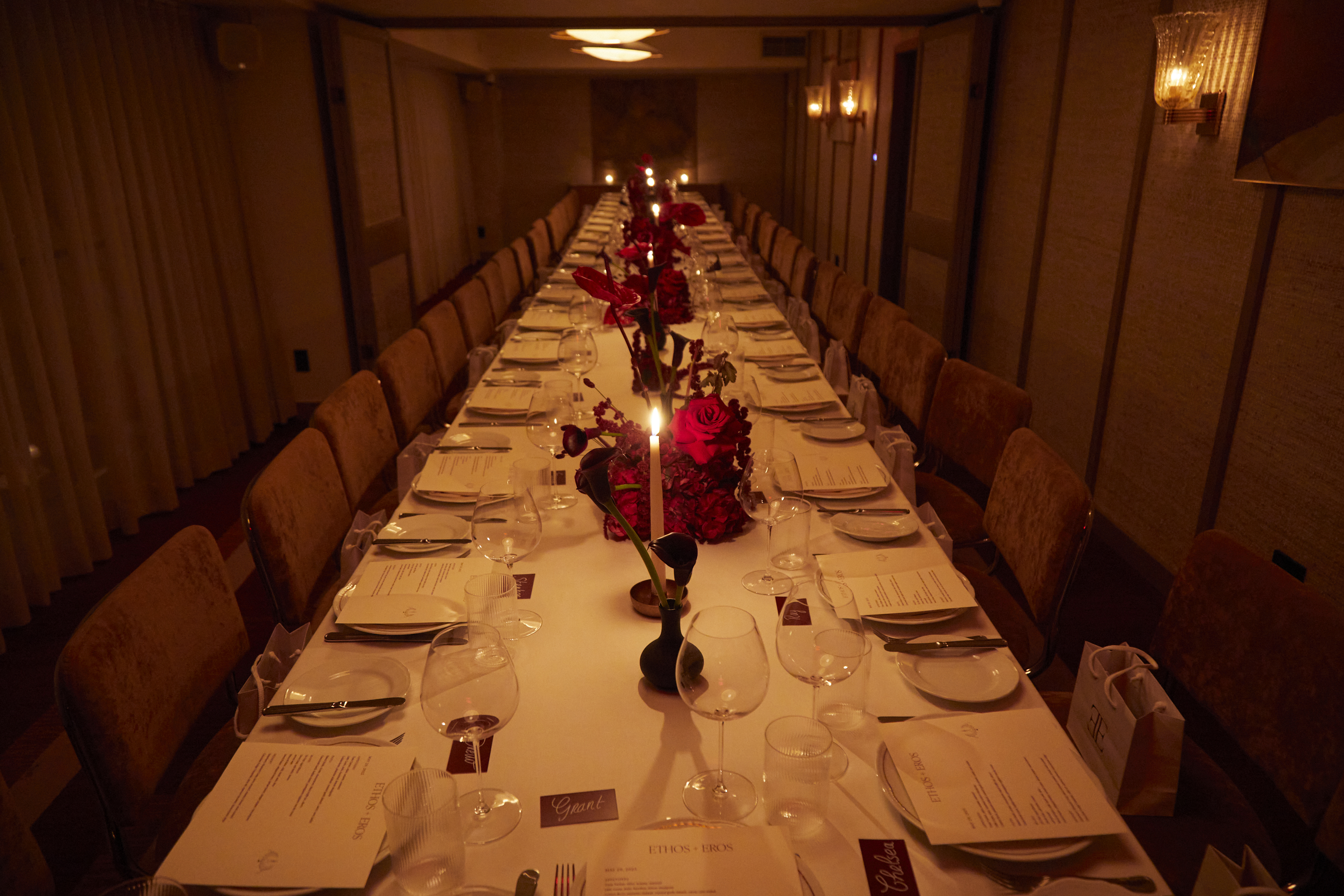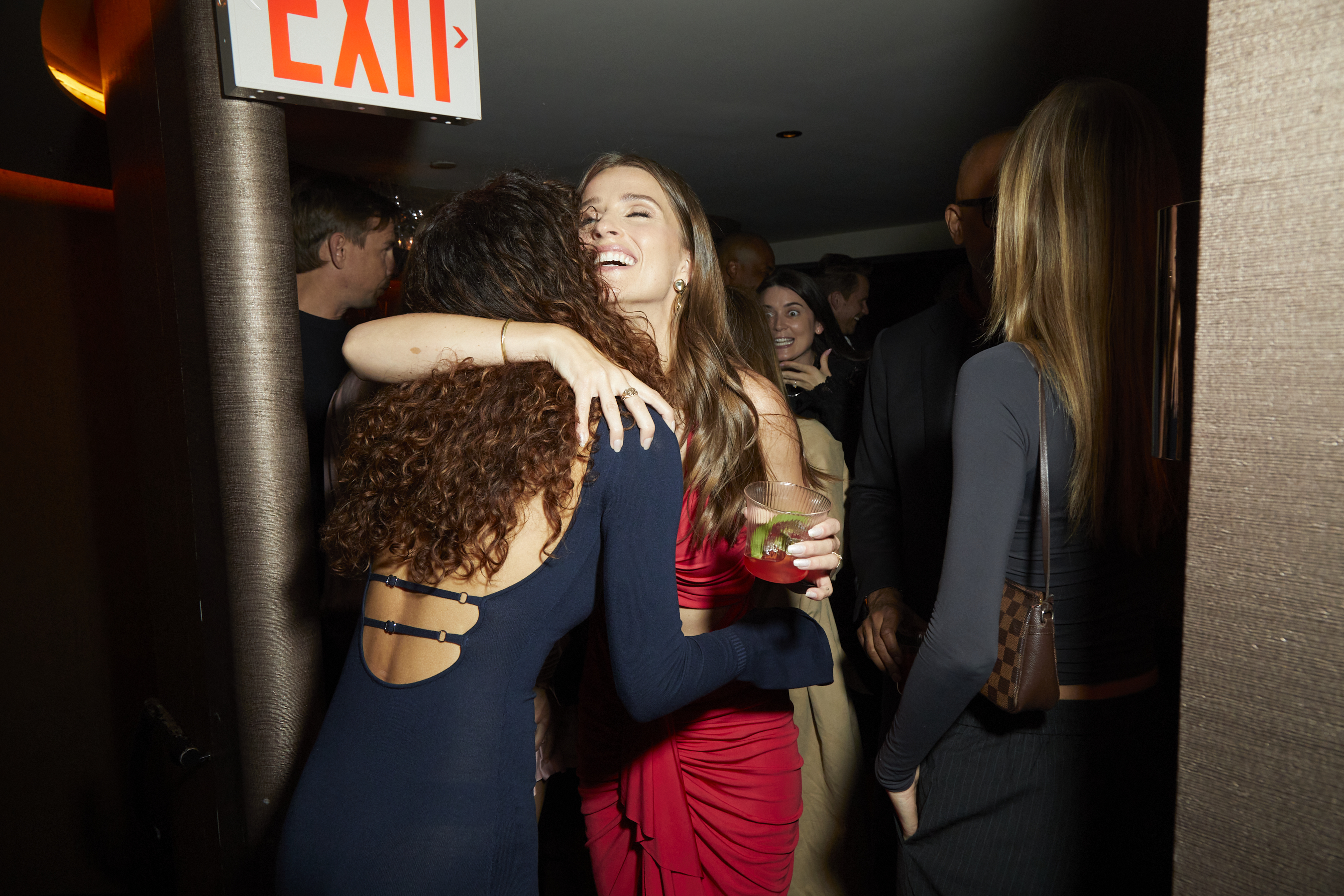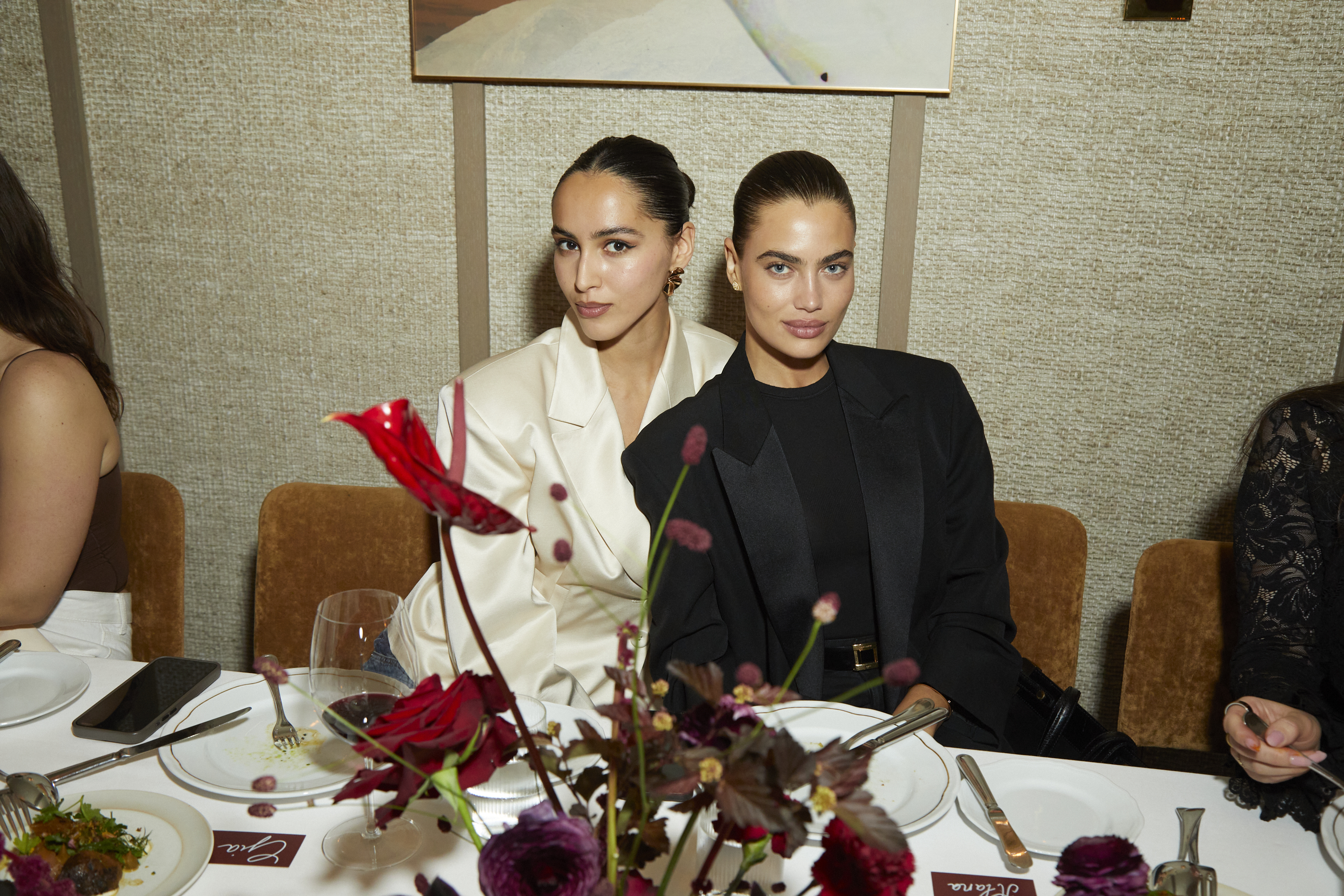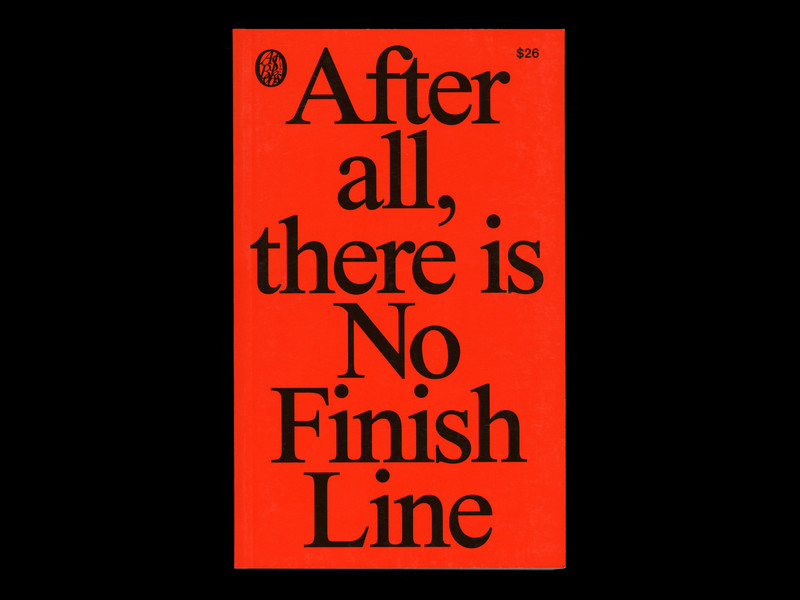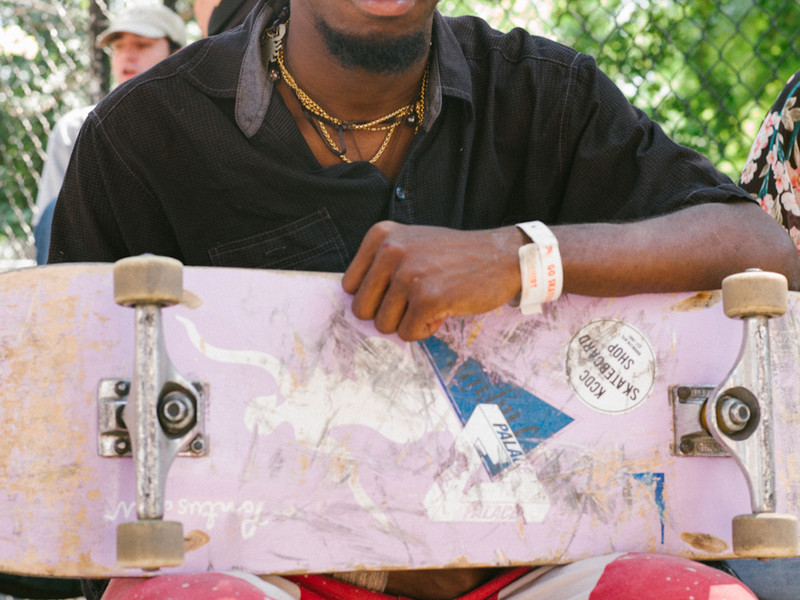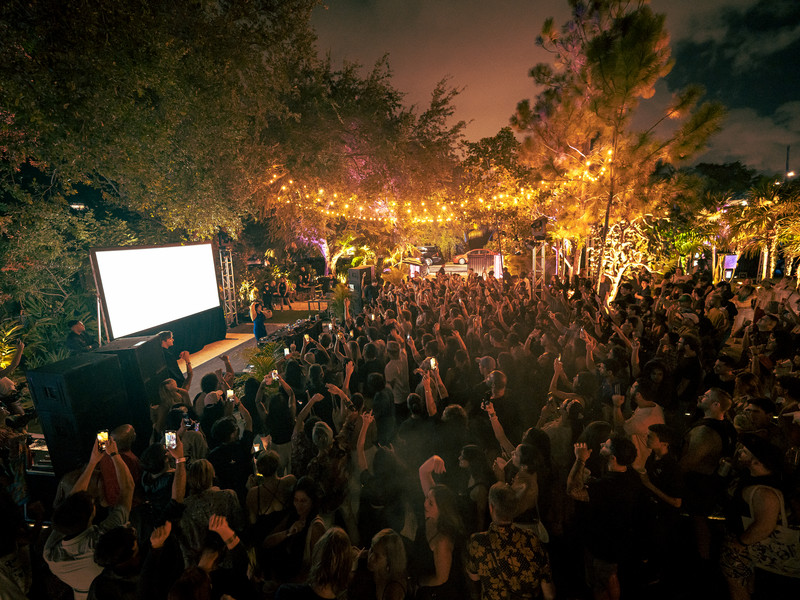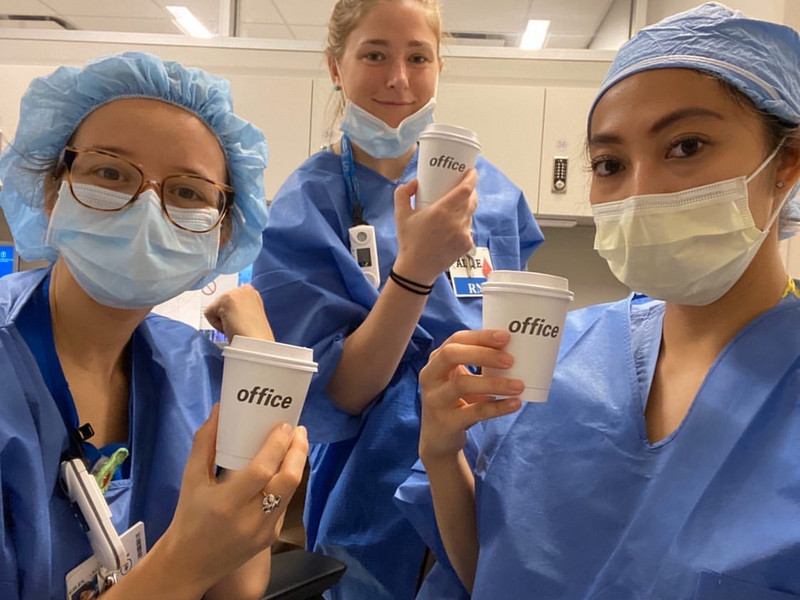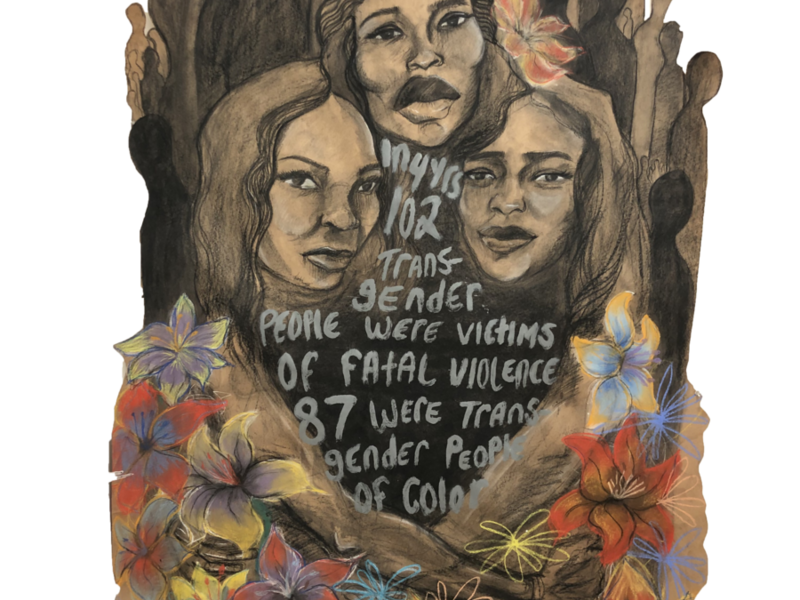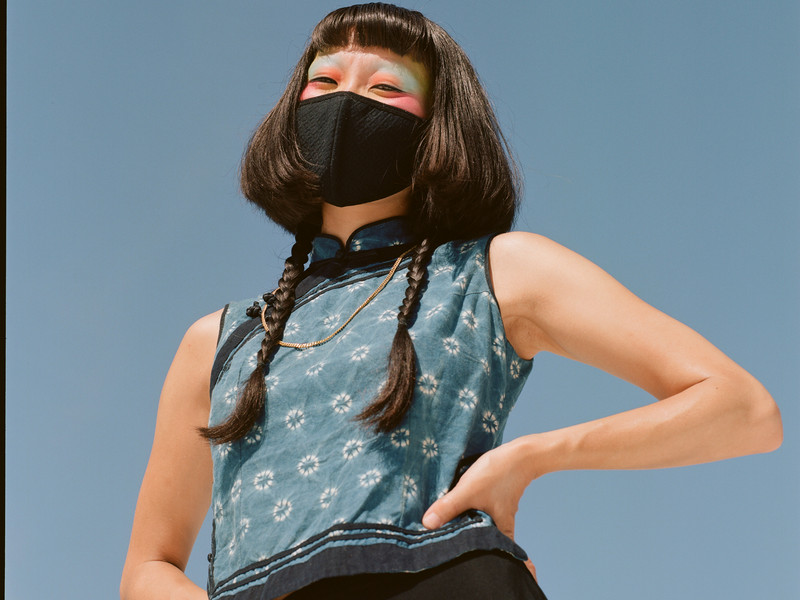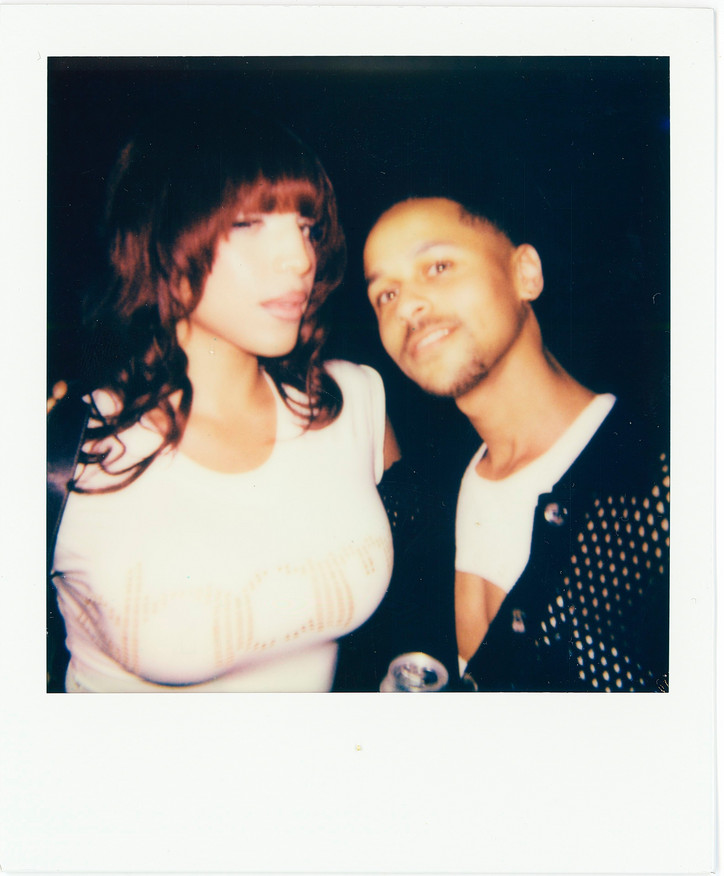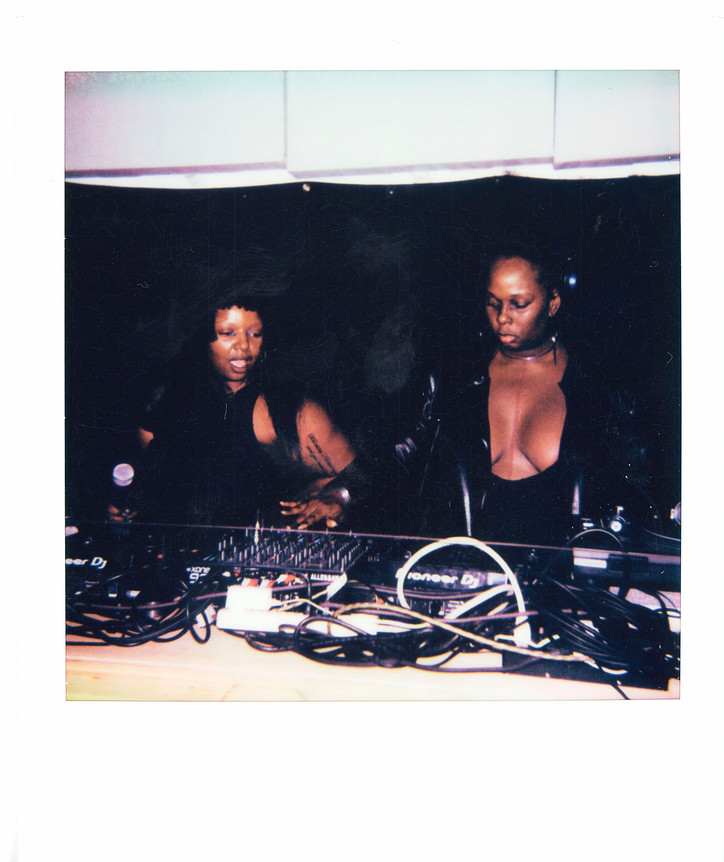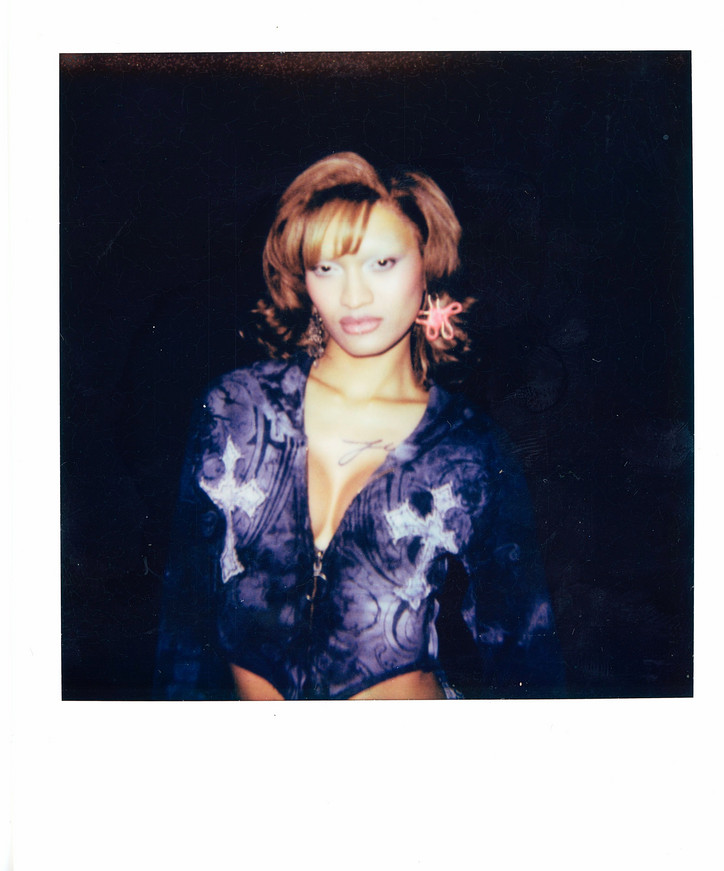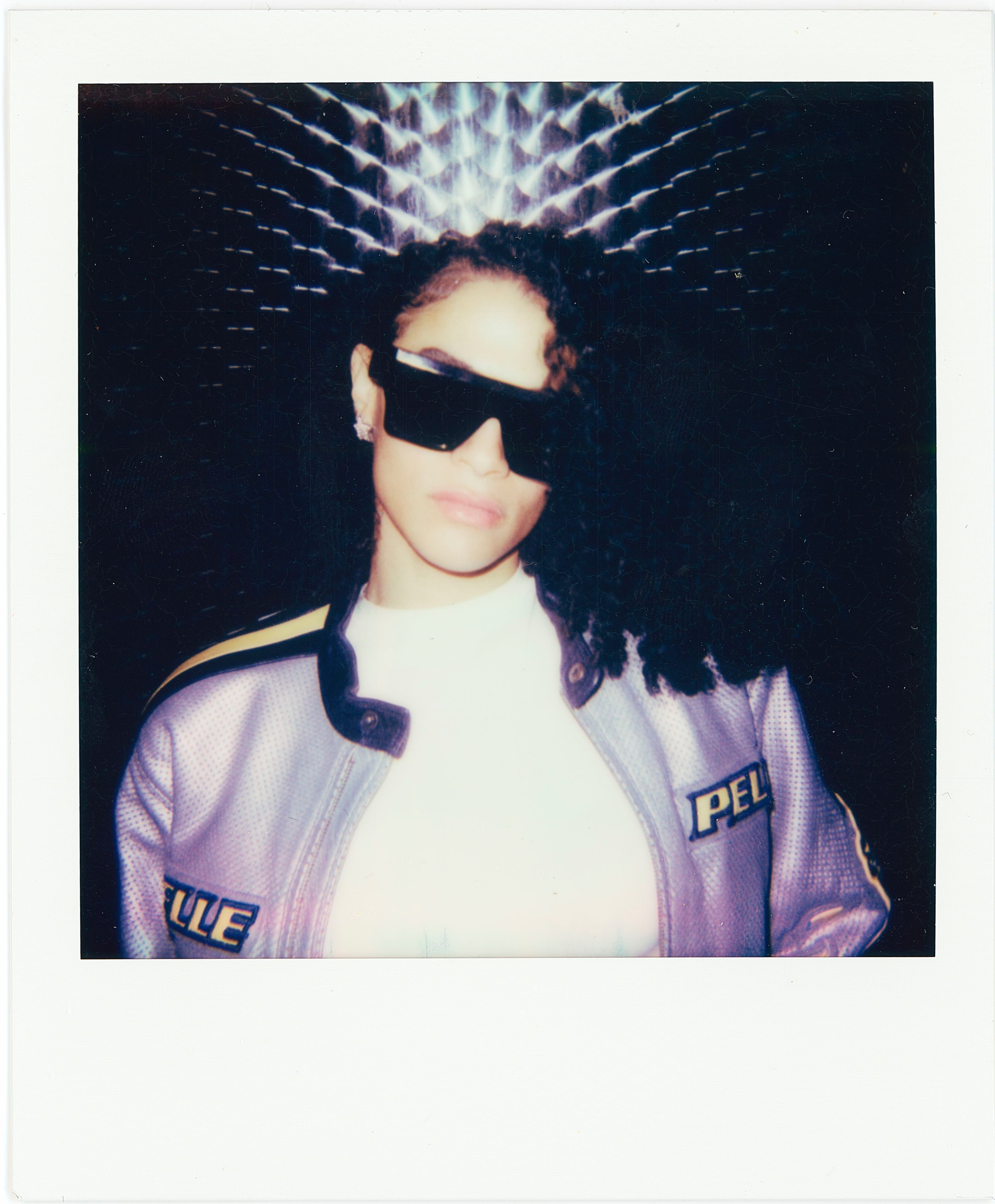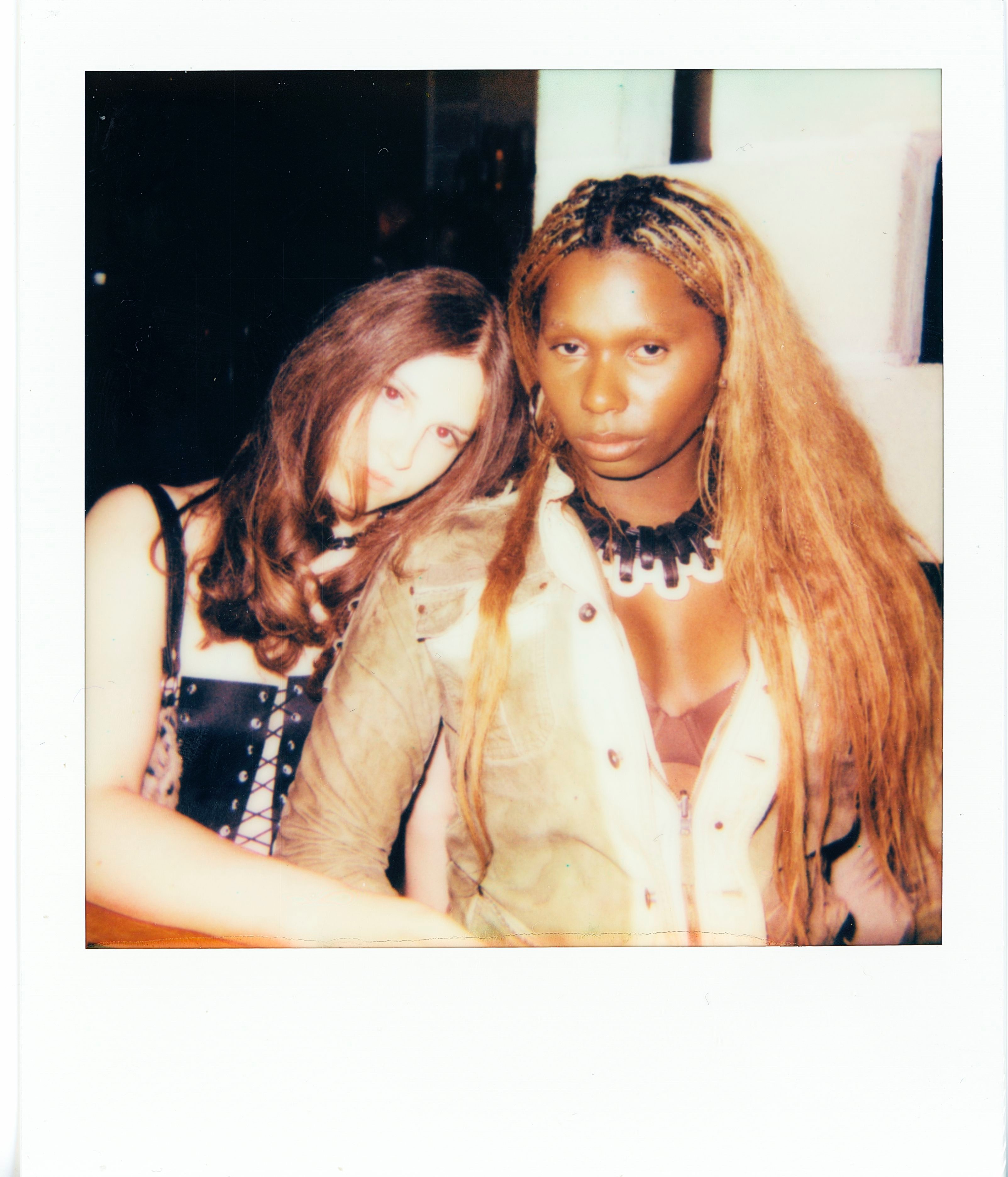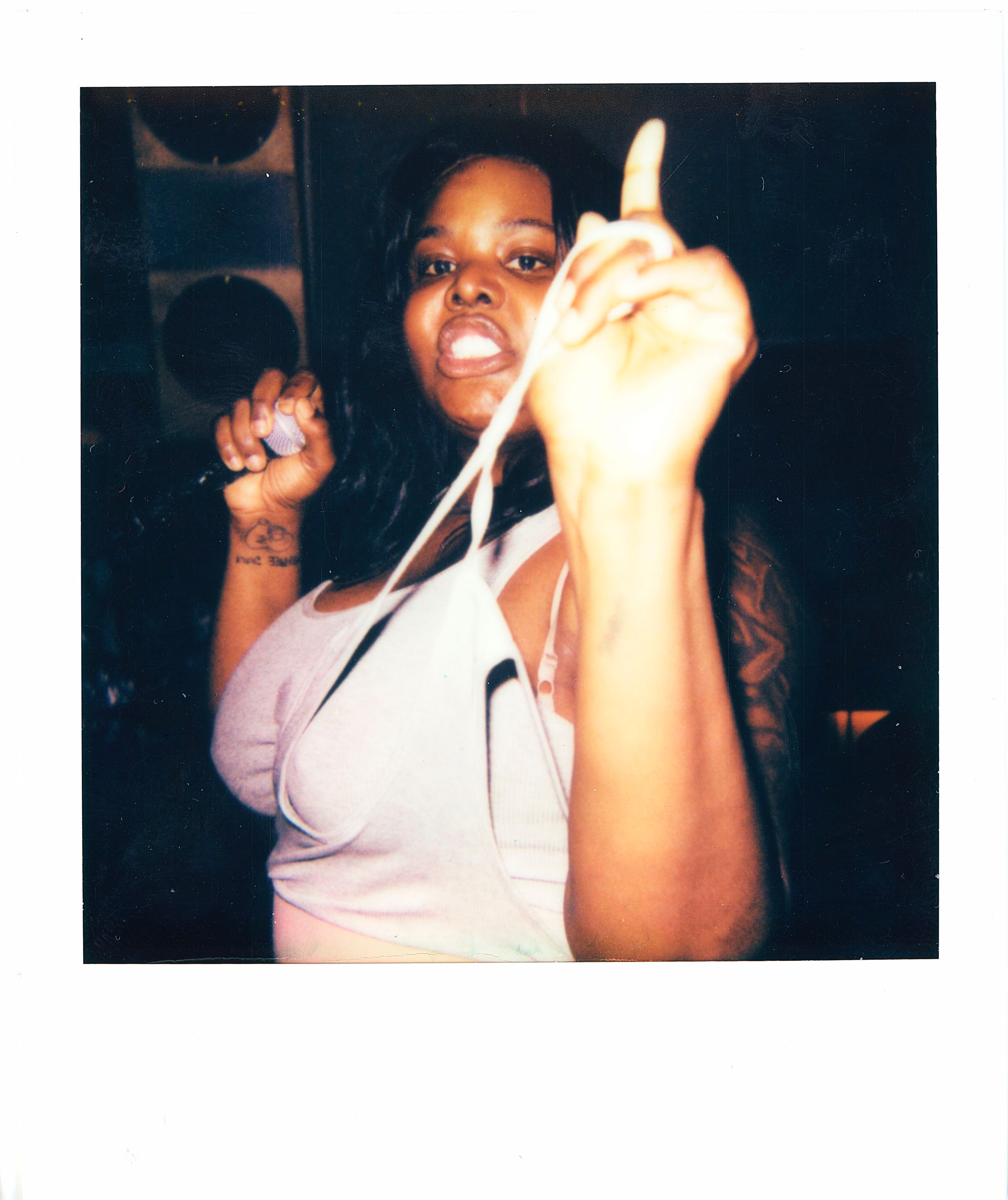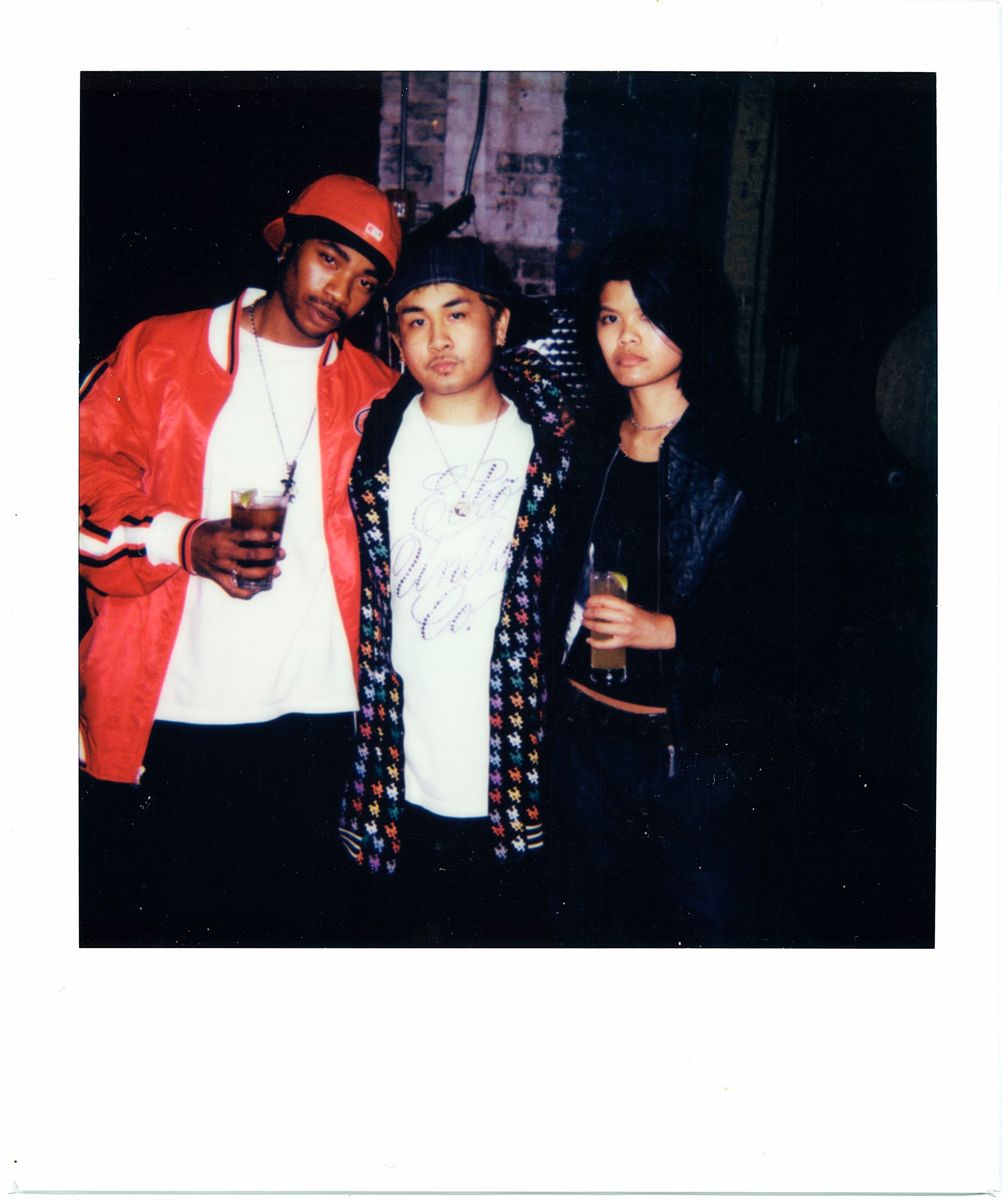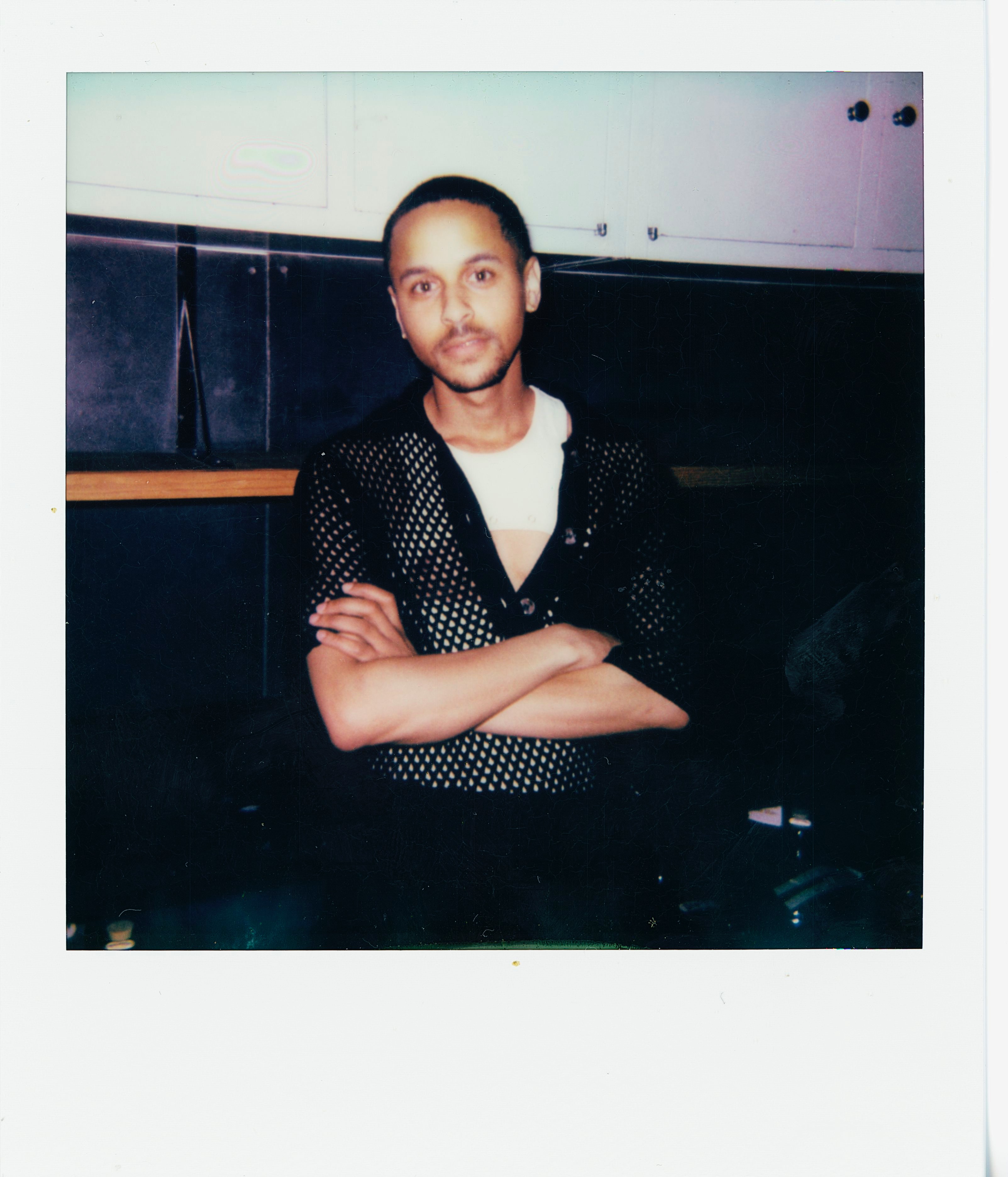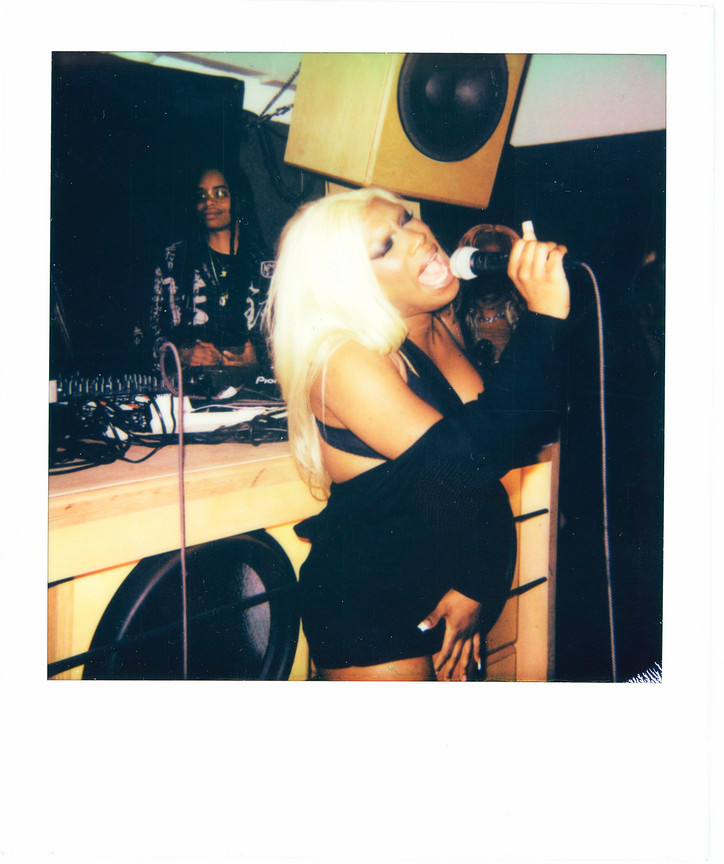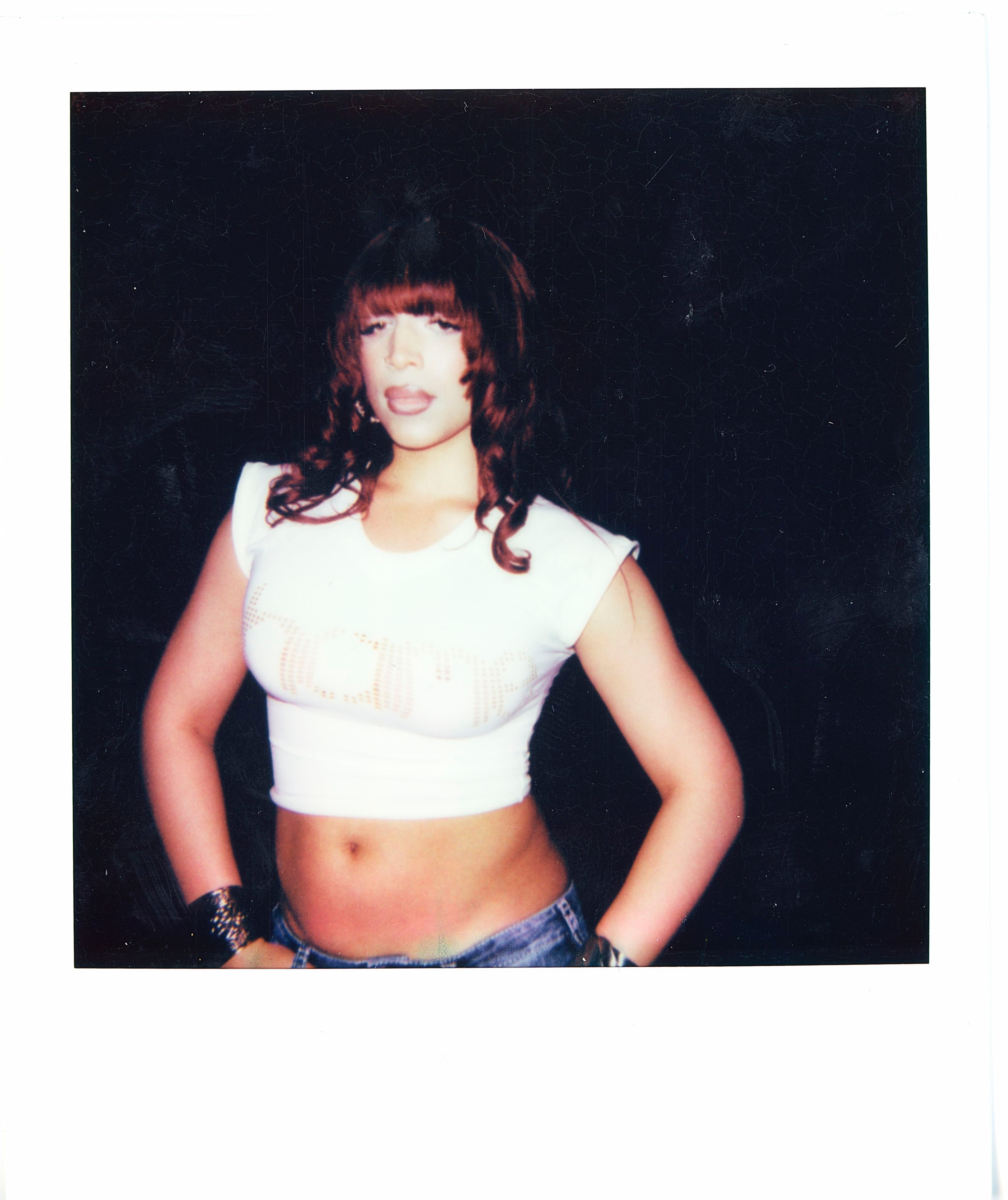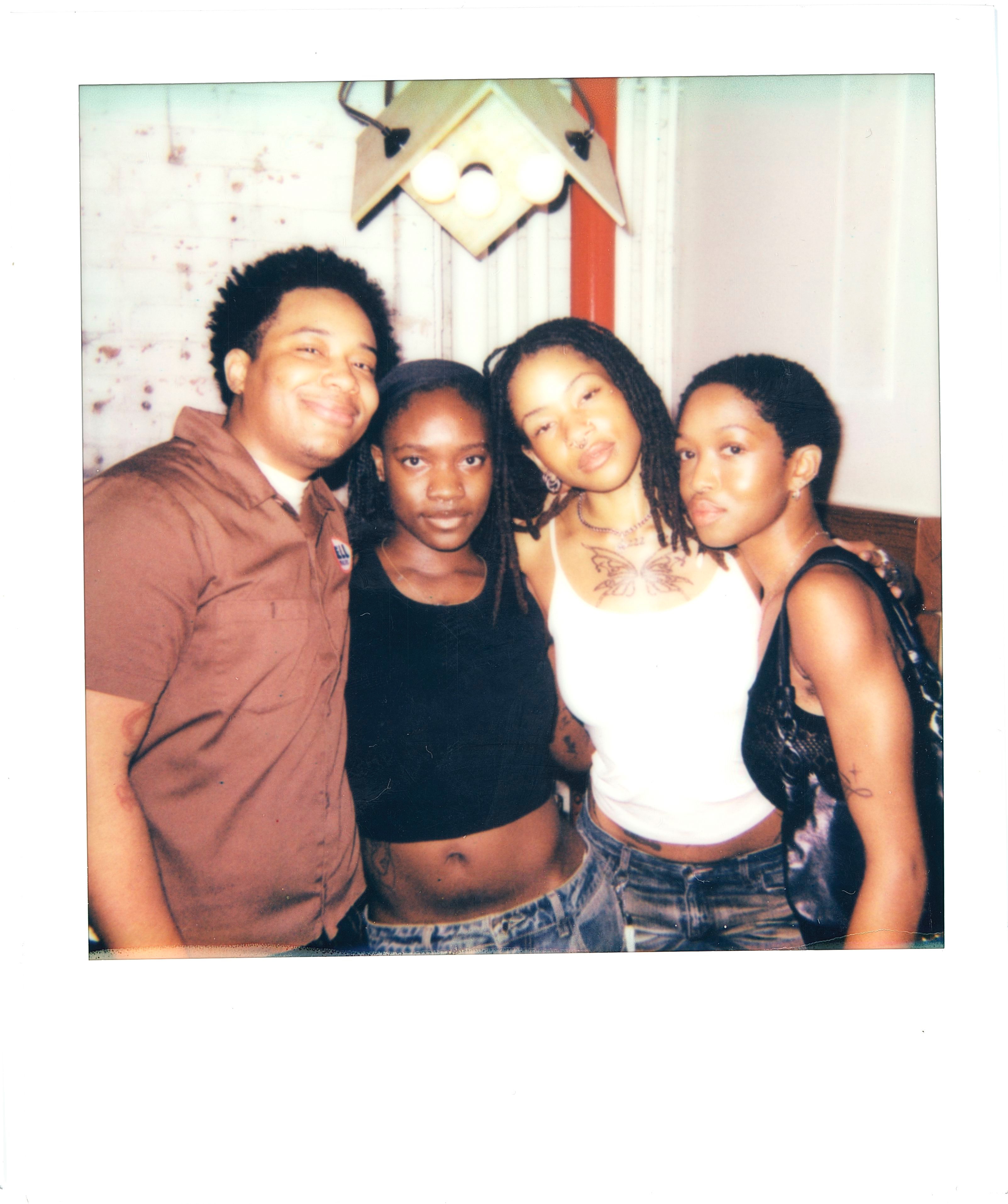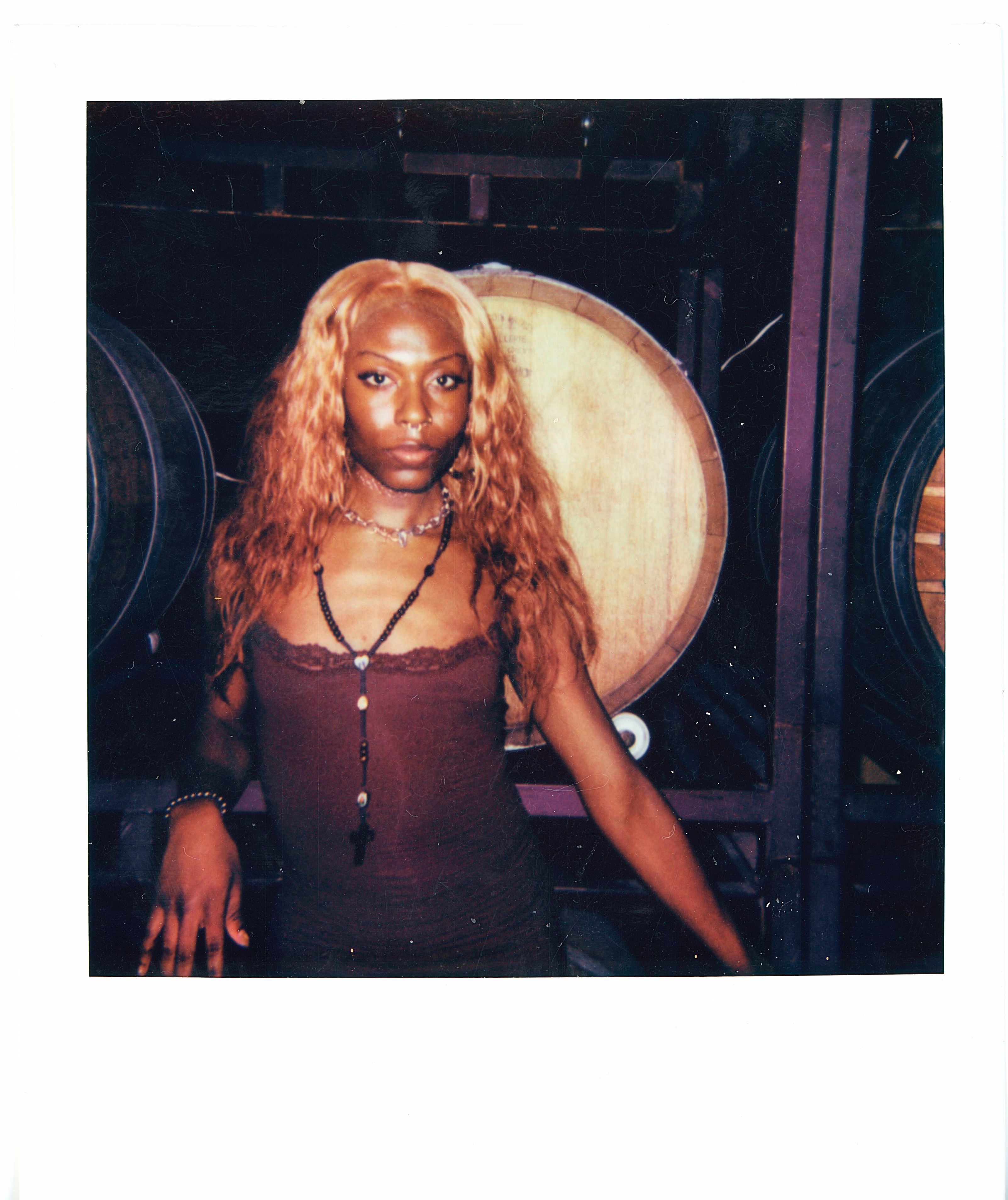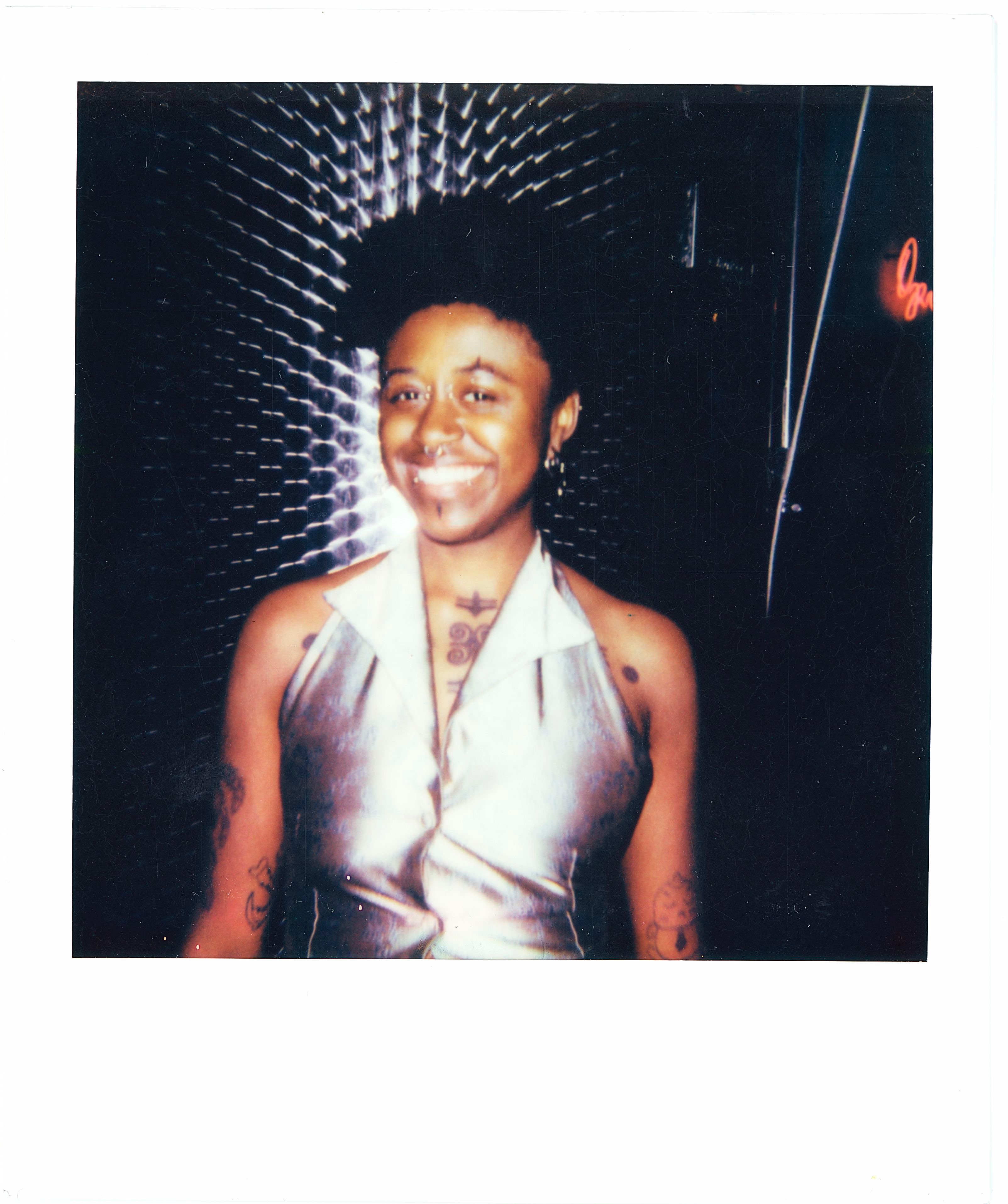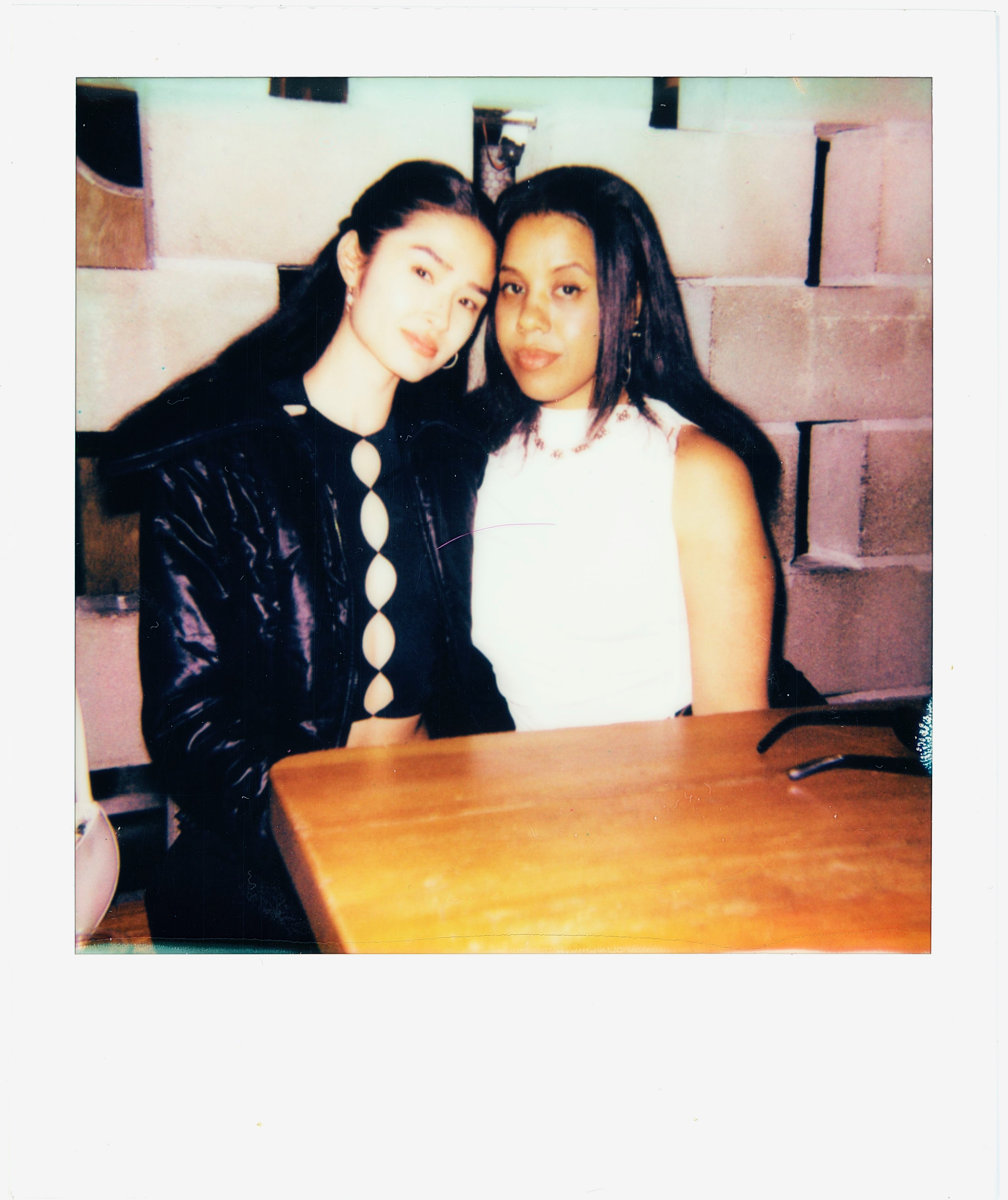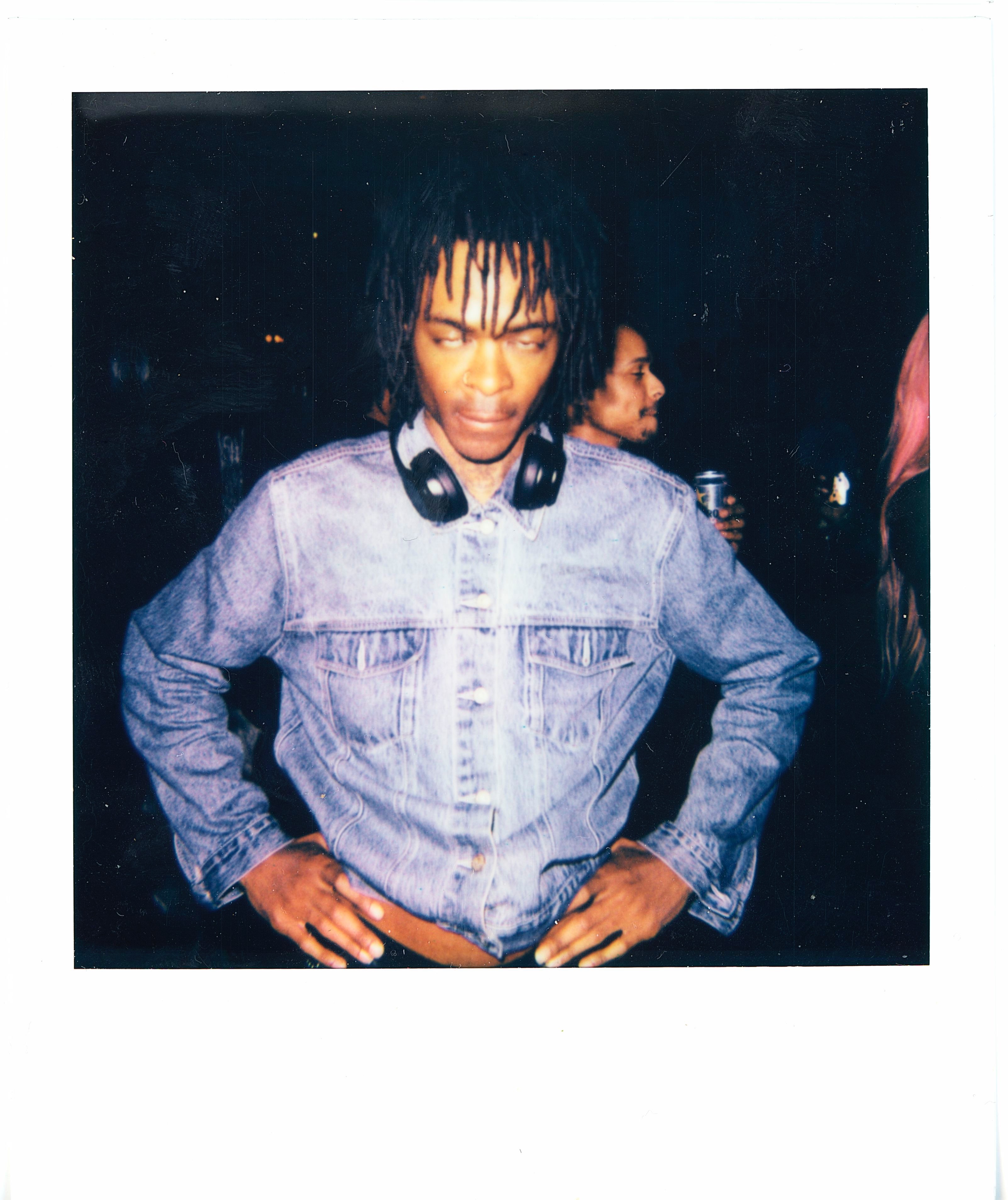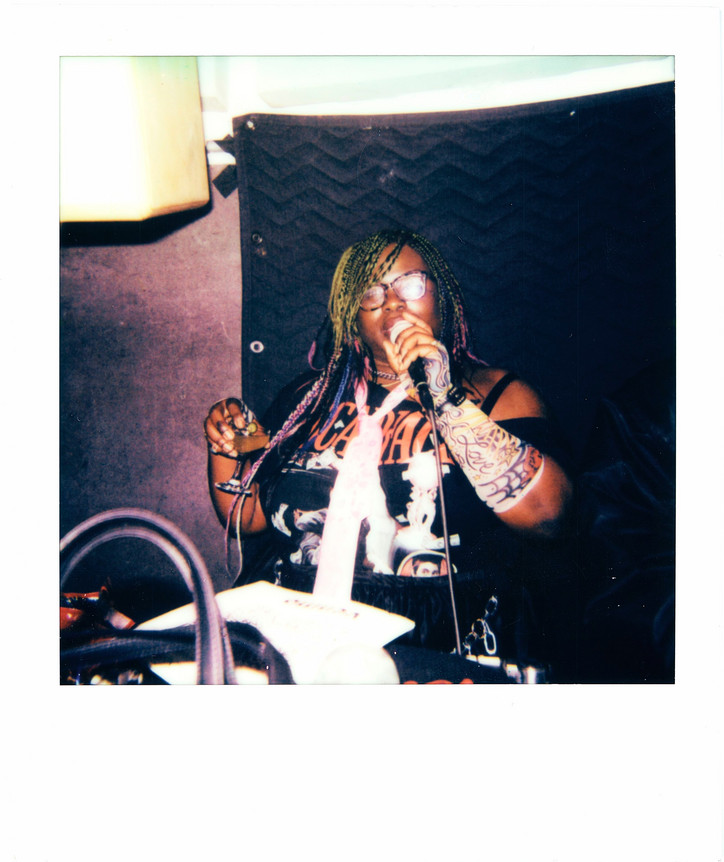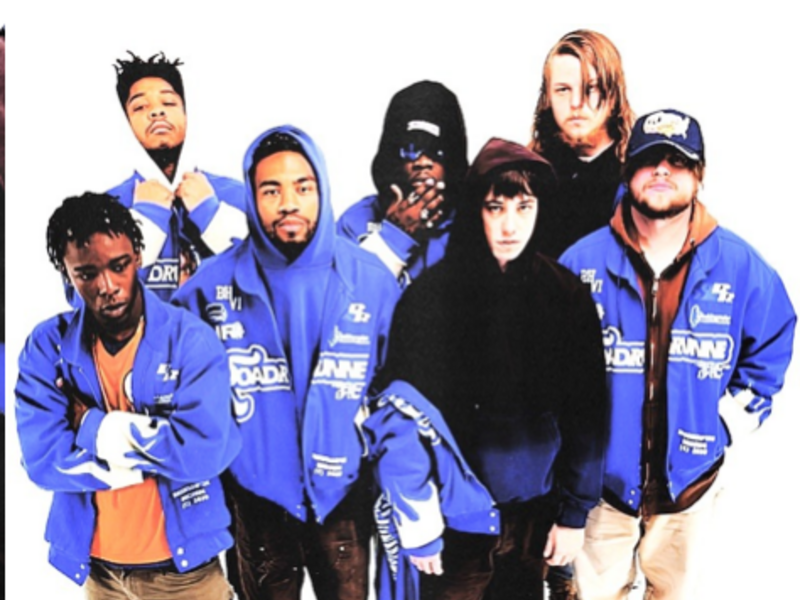Treading Common Ground at Eaton D.C.
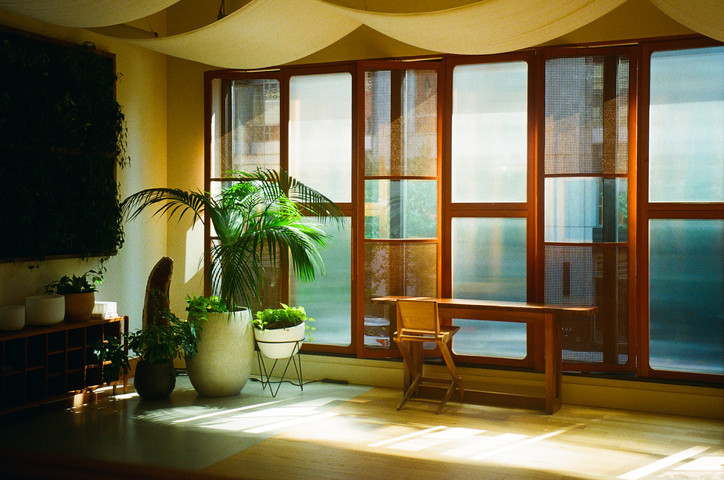
On Washington D.C.’s K Street–a stone throw away from the Capitol, Chinatown and the housing encampments in Samuel Gompers Park–lies the Eaton Hotel. Rooted between disparate cultures, communities and classes, the Eaton aims to be a point of confluence.
The lobby opens on one of Khalil Joseph’s BLKNWS installations, while music from Eaton radio hums through the hotel walls. In each room, designed with an homage to the building’s history first as a printing press, then a 70s era bus station, guests will find hand selected books, vinyls and a record player, as well as the U.N. human rights constitution in the place of the Bible. Throughout the hotel, are communal gathering and work spaces like the open-access ‘Library’ and membership based Eaton House work and meeting spaces.
Built around the pillars of Hotel, House, Wellness, Culture, and Impact the Eaton is rethinking what it means to host. The hospitality industry has been due for a reckoning with big name developers displacing locals, destroying cultural and environmental landmarks, and white-washing, no pun intended, their neo-colonial endeavors to curate ‘luxury’ experiences. Founder, Katherine Lo, was no stranger to the intricacies of the hospitality industry.
Daughter to Langham hotel founder, Lo Kah-shui, Lo was tasked by her father to make a hotel for the future. Pulling in her own experience in creative and organizing spaces, Lo realized the opportunity to create hotels that were cultural epicenters, reflecting and enriching the spirit of the cities they inhabit. Having studied anthropology and worked in social and environmental advocacy, as well as creative spaces, Lo’s biggest influence in Eaton were the communities she’d worked with throughout her career.
“I think that was a big inspiration for Eaton,” says Lo. “Creating this ultimate gathering place under one roof where we really nourished every single aspect of being human–from art, culture, music, wellness, film, impact, and even to the design and architecture and food and beverage.”
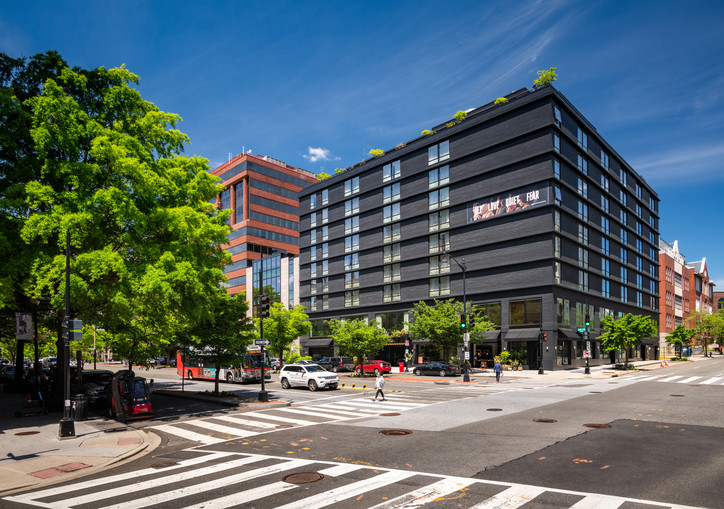
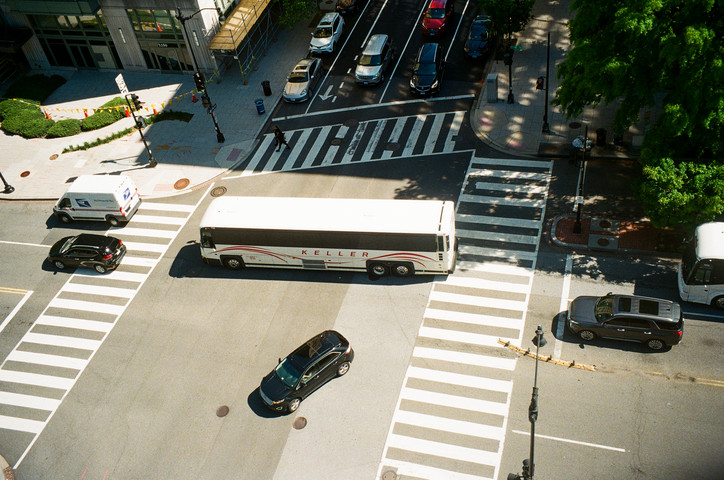
Eaton D.C. is home to a live broadcast radio station, an in-house cinema, a gallery space, a public library and a wellness studio, making space for individual expressions of creativity and the social glue that comes with them. Their business model is local-facing, with flagships in D.C. and Hong Kong, and anticipated openings in Toronto and Seattle. The D.C. space, located in the political hotbet, albeit cultural void, of Washington D.C. 's K-Street has drawn the taste-and-change-makers of D.C. back downtown.
“I think so many of our audience and community members are all surprised by the location because K Street is known for like political lobbyists and much more like mainstream–who or what you think of when you think of D.C.,” says Lo. “A lot of the more up and coming cultural areas would be U Street and H Street. And so my team and I joke about how we're bringing U Street to K Street.”D.C. initiatives are largely focused on the unhoused, sex workers, and the AAPI communities fighting the gentrification of D.C.’s Chinatown. The interior and architecture of the space reflect and aim to uplift these locally marginalized identities, while also paying homage to the history of D.C.’s downtown.
Once known as “Chocolate City,” D.C. had one of the highest concentration of black population during the ‘70s, peaking at 71.1 percent. At that time, the space the Eaton now in habits was a point of convening. Then, a bus station, the Eaton now pays homage to its history in its interior design and key details–like all-gender bathrooms, and locally-curated art installations– accumulated throughout the hotel to signal, by way of mutual recognition, that the Eaton itself is a safe space, and a home.
“Until 20 or 30 years ago, there wasn't that big of a population here,” said Eaton’s impact director, Katie Petitt, “So it was built like a small town. And it was Chocolate City then. So now. A lot of money, like all over the world, it's coming in from developers, and the city loves it. But the city's not taking care of its people and definitely not taking care of all the marginalized folks and the people who are working to help the marginalized folks, like artists and activists and healers and musicians.”
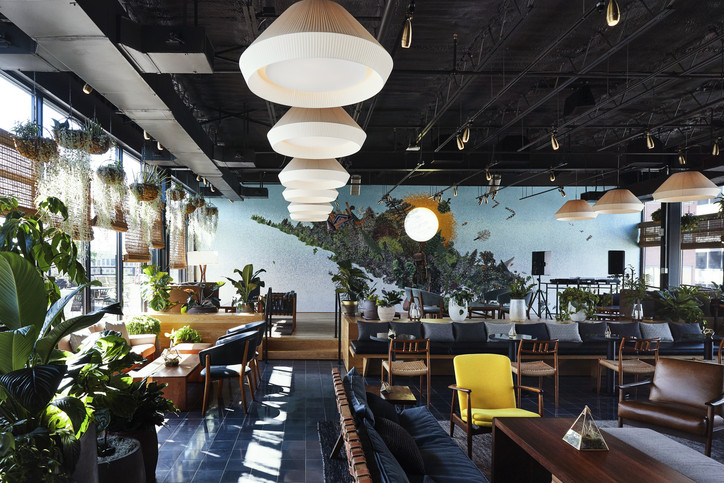
The week of May ninth, to commemorate AAPI month, Eaton D.C. hosted said artist and activist Curts Chin, for a series of workshops, and a screening of his film Vincent Who?. The film tells the story of Vincent Chin, who was murdered by two white autoworkers in Curtis’ hometown in Detroit in 1982, lighting a fire under the Asian American civil rights movement in the city and beyond. Having grown up in Detroit, surrounded by loss–both in his friends and community but also in his space as buildings were routinely burned down and lots left vacant.
“When a city is burned down like Detroit, you just end up with empty lots,” said Chin. “And yeah, maybe you might see a potential of what would happen there…I don't think cities should stay stagnant. Because that's not a good thing, either. I think they do have to reinvent themselves all the time. But it's a question of how you're reinventing yourself and does that gentrification actually cause more harm and displace in a really negative way? So it is much more complicated.”
It wouldn’t be hard to draw juxtapositions between the city in decline Chin was raised in in Detroit, and the gentrification pushing out Eaton’s neighbors. The opening of a boutique hotel would usually connote a neighborhood fast-tracked towards gentrification, and the Eaton is ready to reckon with the reticence of community members to embrace the space, but by investing authentically in the community, it has invested in them too.
For their neighbors in Chinatown, in particular, the Eaton committed itself, early on, to work with local housing projects in Union Square, known as one of the last bastions of D.C.’s Chinatown community and a leader in housing activism across the country. “That's one example of ways that we're always trying to integrate the space that we have,” said Pettit, “because that's really the gift and offering we have to give the community what it needs.”
The space was equally important to Chin, opening a dialogue across communities, and generations. “I feel like it inspires me definitely meeting other artists and also artists of different generations,” says Chin. “You know, it makes you reflect on the things you've done, but also where you fit in this world. There are people here who are much younger [than me]. They're obviously thinking about different things, and having different conversations and being in a space where we can engage in that all has been so meaningful.”
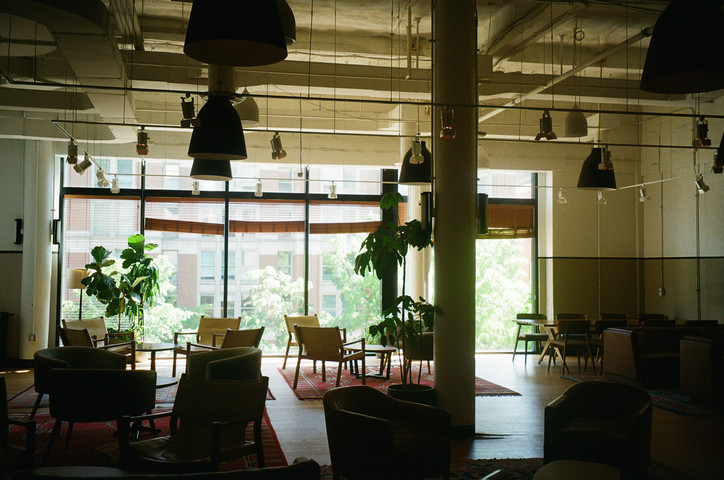
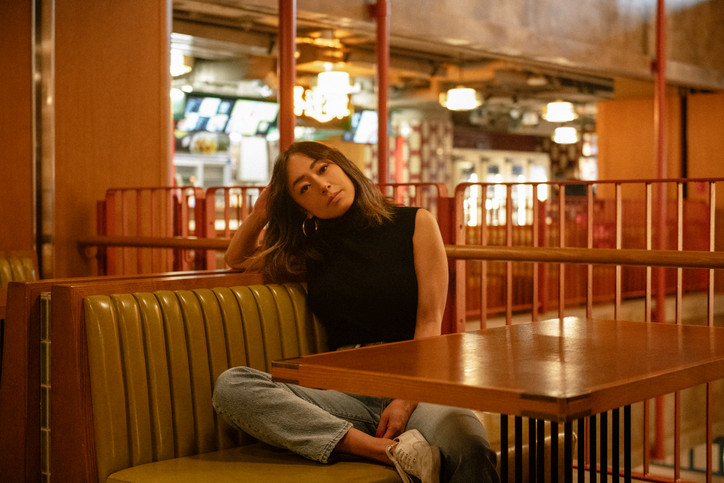
The Eaton, in that way, is a conduit. It is not, itself, a force of action. It is a boutique hotel, and it knows that. A standard room rate is $259 per night, wellness services range from $75 - $275, food, and beverage is billed separately–to the average guest. But those standard fees contribute to the sliding scale opportunities for people who wouldn’t otherwise have access to such services. Locals can stay at the Eaton at a 20% discounted rate, wellness services are reserved and offered for free to community members, space is free to use for local organizers and activists, and the Eaton gives platform and agency to local creatives to rebuild D.C.’s downtown culture. As wellness director, Tara Purnell put it “activists need to chill too.”
The Eaton recognizes the system it operates under. It needs to make money, but Lo has circumnavigated traditional revenue streams to create symbiotic, rather than exploitative relationships between “service” and “good”--allowing both to restore their humanity under the roof of the Eaton. The space, whose personality, ethos, and legacy are malleable in the hands of those who mold it, allows for disparate experiences (and clientele) to find common ground and move towards a place of greater understanding during their stay, and inspiration after check-out.

